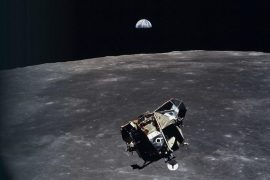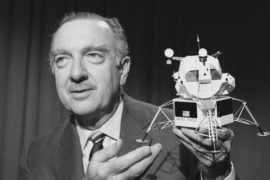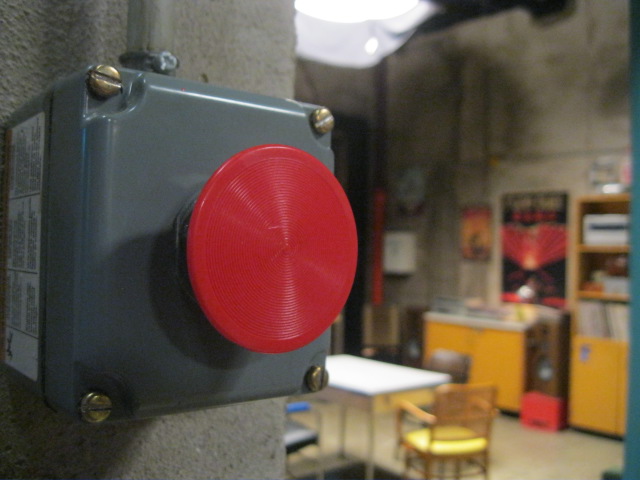 In general, TV critics are a pretty jaded bunch. Some of us have seen a few generations of Jonas Brothers, for example, come and go. Every once in a while, however, a real TV heavyweight makes a stop at one of the semi-annual Television Critics Association press tours in Los Angeles and everybody remembers why they became a TV critic again. Such an occasion was a visit three-and-a-half years ago from Walter Cronkite.
In general, TV critics are a pretty jaded bunch. Some of us have seen a few generations of Jonas Brothers, for example, come and go. Every once in a while, however, a real TV heavyweight makes a stop at one of the semi-annual Television Critics Association press tours in Los Angeles and everybody remembers why they became a TV critic again. Such an occasion was a visit three-and-a-half years ago from Walter Cronkite.
The former CBS Evening News anchor was the star attraction at a January, 2006 session for PBS. Cronkite was being saluted by the PBS series American Masters, which seemed exactly right. He was The Man in an era where network news anchors spoke to a much, much wider audience. He also had a front row seat on history during the most tumultuous, newsworthy decades of the 20th century and brought us all along for the ride. He was the trusted voice of God, a bigger deal than CNN, Fox News and all of today’s network news anchors put together.
Even in his ninetieth year, as he was on that January day (he died this past Friday at 92), he had presence and sparkle. The veteran newsman sat on a riser in a ballroom at what was then the Ritz Carlton in Pasadena, Calif., and we all sat at his feet, spellbound.
The way these sessions work, critics raise their hands and compete for microphones in order to get their questions through to the subject. Things got a little edgy as the minutes ticked by; everyone wanted their moment with Uncle Walter. A few of the critics got into a bit of a tug of war over who had the next question. A bit of a shouting match ensued. Cronkite sat back and grinned. “Now that’s the kind of journalism we know,” he said.
It reminded him of his days as a war corresponded for CBS radio during WWII. Cronkite told us about Homer Bigart of the Herald Tribune, who he called “an incredible reporter and a great writer.
“But he had a terrible stutter, a terrible stutter,” said Cronkite. “And it was an awful problem for him in a group situation where four or five reporters have a subject that they’re questioning. And he would try to get a question in, and he’d say, ‘Well, well, well, well, well…'”Somebody else would step in a take Bigart’s spot, Cronkite explained. “We all waited for the moment when Homer suddenly would throw his hands into the group and say, ‘Wait a g-g-g-god-d-d-dam m-m-minute!'”
And that, Cronkite told us, was what we would have to do on this day: “W-w-wait a g-g-god-d-damn m-m-minute.”
Cronkite went on to answer all our questions. Yes, he was still on the CBS payroll and still had an office at the network. For how much longer? At least until he was 90, he hoped, holding up crossed fingers. He made it, of course. No way was CBS ever going to downsize Cronkite. For those of us old enough to remember him checking the clock and giving the official word on the death of president John F. Kennedy, there were plenty of questions to ask. His career spanned both radio and television, and, as he remarked, big events such as the Kennedy assassination or the moon landing demonstrated the power of the mediums to “bring people together simultaneously to either exalt or to cry or whatever the reaction was required by the story.” He said he and his CBS News colleagues never spoke about putting on a “show,” they put on a “broadcast.”
For those of us old enough to remember him checking the clock and giving the official word on the death of president John F. Kennedy, there were plenty of questions to ask. His career spanned both radio and television, and, as he remarked, big events such as the Kennedy assassination or the moon landing demonstrated the power of the mediums to “bring people together simultaneously to either exalt or to cry or whatever the reaction was required by the story.” He said he and his CBS News colleagues never spoke about putting on a “show,” they put on a “broadcast.”
He was proud of his coverage of the space program, which led to that amazing moment 40 years ago today when Neil Armstrong stepped off the Lunar module and onto the surface of the moon. “I took that as my own assignment,” said Cronkite of the space mission. He had hoped to get there one day himself; like a lot of us, he probably though there would be a regular shuttle there by now.
I had just turned 12 that summer and had already glued together my first Aurora Apollo rocket model or two. I watched the moon landing with my parents at a place that was about as far removed from Houston Control or Cape Kennedy as you could get–on the shores of Lake Huron, huddled around a black and white set at a neighbour’s cottage. (It is the same place where news of Cronkite’s passiing reached me this weekend.) To this day, I look up at the moon and the stars–so astounding in the clear, dark sky over the rocky Bruce Peninsula–and think of July 20, 1969. For TV viewers on that unforgettable day, Cronkite brought that sucker in and his relief earlier when the LEM and its spindley legs landed safely was felt and shared all around the world. Cronkite is often credited with bringing the career of Kennedy’s successor, Lyndon Johnson, to a premature end. Especially after he visited Vietnam in early 1968 and stepped out from behind his usual neutral anchor chair to tell America that “it is increasingly clear to this reporter that the only rational way out then will be to negotiate, not as victors, but as an honorable people who lived up to their pledge to defend democracy, and did the best they could.” (Read the full text of his Tet offensive editorial here.)
Cronkite is often credited with bringing the career of Kennedy’s successor, Lyndon Johnson, to a premature end. Especially after he visited Vietnam in early 1968 and stepped out from behind his usual neutral anchor chair to tell America that “it is increasingly clear to this reporter that the only rational way out then will be to negotiate, not as victors, but as an honorable people who lived up to their pledge to defend democracy, and did the best they could.” (Read the full text of his Tet offensive editorial here.)
Johnson was later quoted saying that losing Cronkite meant he had lost Middle America. Two days later, as protests over America’s involvement in Vietnam grew louder, he ended a presidential television address with the shocking announcement that he would not seek or accept another term as U.S. president.
When the mike was finally passed to me, I asked Cronkite about his hand in Johnson’s political demise. While he was proud of his (unusual) editorializing on the Tet Offensive and any part that might have played in speeding up the end of that war, he shook off any credit as Johnson’s giant killer: “I do not believe for one minute that–what some journalists, active historians considered my influence at that moment with the White House.” Other factors were at play and Johnson had already made up his mind, said the newsman. “My piece just kind of was another bullet in his rear end.”
Cronkite was being modest. I’d traveled to Austin, Texas, shortly before that press tour and had made a point to visit the LBJ presidential library. There is a recreation of Johnson’s Oval office on display there. Johnson had the room tricked out with a wide, built-in, three-TV console, which allowed him to monitor the CBS, NBC and ABC newscasts each night. He’d sit in a large chair with buttons all down the side of one of the armrests, allowing him to flip channels, videotape shows (an electronic novelty back then) and, apparently, run the country.
Next to that was a phone and LBJ worked that like no other president. Even during the nightly newscasts, as Cronkite revealed:
He used to telephone me when I was on the desk and broadcasting. He watched the ‘Evening News’ on CBS and then he would watch NBC, ABC and so forth.But he would jump up apparently and grab the phone after I’d done something he didn’t like on the air, and he’d call and insist on talking to me. I was on the air. he could see me right there.
And the poor secretary there who picked up the phone when we were on the air from my office right off the newsroom would say, ‘Well, he’s on the air Mr. President…’ ‘Goddamn it, I know he’s on the air. Get him on there.’
And she’d have to put up with this shouting until actually I was off the air. And then he’d get through to me and demand some kind of retraction of a story we’d just done. He felt he could control those things. He quite obviously didn’t with any news organization that I know of.
Sitting in that room, listening to this great reporter speak, you couldn’t help but think: who in the news business has the kahones as well as the respect and authority to stand up to presidents and prime ministers today? Cronkite was old school, just doing his job, being objective but also, when the times called for it, being adversarial. Be fair, honest and as impartial as it is possible to be, he advised future news anchors, but also “stick with those principles of good journalism, regardless whatever pressure you may be under for one reason or another.” The job is far too important,” he told us on that day, “to permit others to dictate how good journalism should be employed.”
Cronkite was old school, just doing his job, being objective but also, when the times called for it, being adversarial. Be fair, honest and as impartial as it is possible to be, he advised future news anchors, but also “stick with those principles of good journalism, regardless whatever pressure you may be under for one reason or another.” The job is far too important,” he told us on that day, “to permit others to dictate how good journalism should be employed.”
Now he’s gone, and all we have is his example. And that’s the way it is.
For a terrific collection of tributes to Cronkite, written by some veteran TV observers, jump on over to David Bianculli’s excellent blog, TV Worth Watching.





